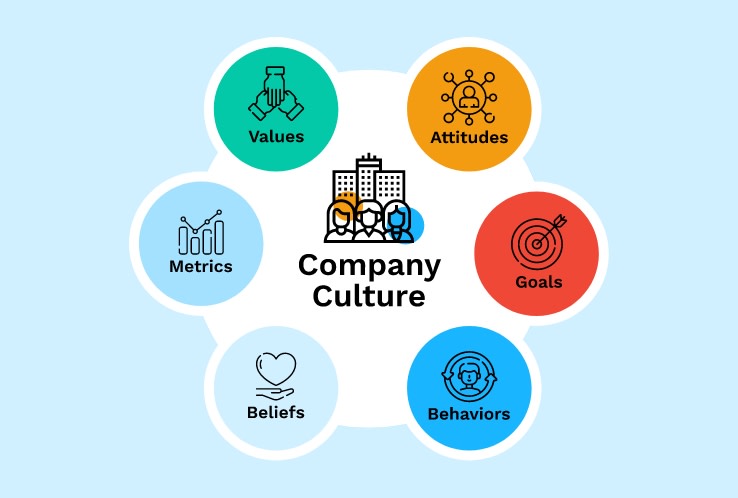


Whether it focuses on B2C or B2B, whether it employs 10, 100, or even 1.000 people, every company shares a common trait: it’s made by people. And where there are people, there is culture— the sum of explicit or implicit norms, rituals, and beliefs that a group shares and uses as a compass to navigate the world. This is a true statement both in large, complex companies than within smaller, focused groups such as startups. It may seem complicated, but one thing must be clear from the outset: culture is everything.
When it comes to companies or startups, corporate culture is what enables the organization to grow and succeed. Here’s an example to make things clearer: a company is like a sports team. Founders, CEOs, and the entire management are the coaches, the employees are the players, and success is the victory of some prestigious title to display in the trophy cabinet. What role does culture play? Culture is the training, the individual coaching sessions, the study of tactics: everything that gives the team a tactical and sporting identity and allows the players to perform towards a common goal.
 Source: https://www.sociabble.com/blog/employee-engagement/definition-building-company-culture/
Source: https://www.sociabble.com/blog/employee-engagement/definition-building-company-culture/From the previous example, it might seem that culture is related to rules and directives, but that's not exactly the case. To put it simply, culture precedes norms, and by quite a margin. It's easy to associate the concept of "corporate culture" with the much more tangible "Employee Handbook," the document that summarizes the company vision and the set of rules and rights of the employee. And that's not wrong, as long as the "Employee Handbook" is based on the company's core values. A company that wants to be successful and build a strong identity in which people can identify themselves, must offer X because it believes in Y, where Y are the fundamental values that guide every decision and action daily.

Corporate Culture is what makes the difference between a company that is successful, endures over time, and manages to retain its employees, and one that is not successful or only succeeds for a short time. Drawing upon the insights provided, we now delve into the intricacies of each approach, enriching our understanding of cultural creation and reinforcement within the company.
The products and services offered by a company should be the embodiment of its values. For instance, if customer satisfaction is a cornerstone value, regular interactions between employees and customers should be facilitated. This alignment ensures that every product not only meets but also exceeds expectations, reinforcing the company's commitment to its values.
Trust and empathy are the bedrock of a transparent culture where feedback is freely exchanged. Encouraging personal sharing, celebrating milestones together, and organizing team outings are ways to deepen connections among team members. These shared experiences serve as rituals that foster a sense of unity and belonging.
Transforming the hiring process to reflect the company’s cultural values is crucial. This involves crafting job postings that not only capture the essence of the company but also appeal to candidates who share its values. During interviews, assessing a candidate’s alignment with these values is as important as evaluating their skills.
A strong onboarding process is pivotal for integrating new hires into the company culture. This process should be as meticulously planned as customer onboarding, with a focus on making new employees feel valued and part of the larger mission from day one. The inclusion of cultural training, led by the CEO or Founder, personalizes the onboarding experience, ensuring new hires understand and appreciate the company’s core values.
Building a culture of radical honesty and transparency is instrumental in fostering an environment where trust flourishes. Encouraging open communication and creating spaces where employees feel safe to share their thoughts and feedback without fear of retribution are essential. This openness not only propels growth but also ensures that the company navigates challenges with integrity and resilience.
By narrating authentic stories that illustrate the company's values, leaders can make these principles tangible and relevant for every team member. This approach not only celebrates the achievements that align with the company's values but also personalizes the narrative, making the values resonate on a deeper level with both employees and customers.
To wrap things up, creating a winning culture within one's company or startup is as crucial as defining a unique business idea. Because along with products and services, companies also sell their image, their personality, their set of values—in short, their Culture.
Source: https://review.firstround.com/Culture-isnt-Kumbaya-stuff
Source: https://www.ycombinator.com/blog/how-to-create-an-employee-handbook/
Source: https://www.nfx.com/post/nfx-company-culture-scorecard-and-manual?utm_source=pocket_reader